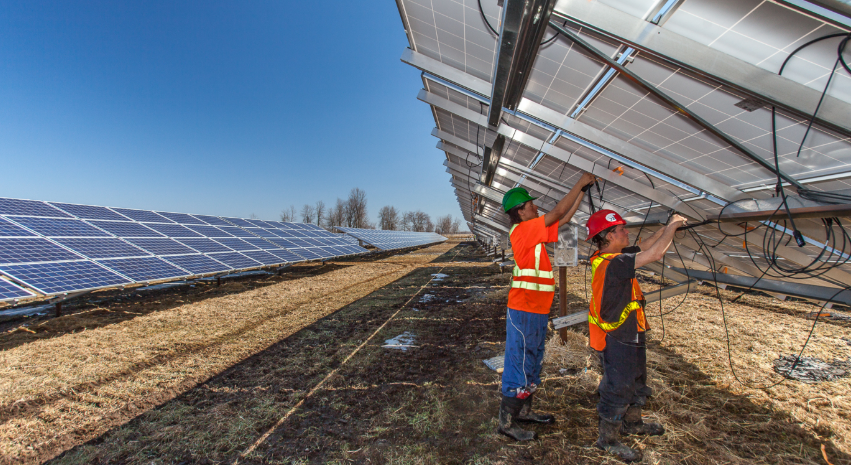Canada faces challenges in clean technology and renewable energy, mainly due to exports from China.
According to the Commissioner of Environment and Sustainable Development’s 2024 Reports to the Canadian Parliament, Canada is not on track to achieve a 90% emission-free power sector by 2030. It is currently at 82% emission-free.
The Canadian Renewable Energy Association (CanREA) points out the need for a transition before implementing punitive measures. According to CanREA, this would allow the renewable energy and energy storage industries in Canada to adapt their supply chains to new alternatives as they develop.
For this reason, CanREA recommends that Canada not apply tariffs and surcharges before 2028. The deadline would allow domestic or alternative supply chains to be operational and able to compete with clean technology products from China.
In addition, CanREA suggests that any tariffs or surcharges be phased in gradually. This would ease the transition and minimize impacts on the industry.
Clean technology challenges
According to CanREA, the proposed tariffs will not spur the development of an industry in Canada. On the contrary, they will make it more difficult for the country to achieve its goals of increasing emission-free electricity generation and improving energy savings through electrification.
On the other hand, CanREA appreciates the federal government’s efforts to protect Canadian electric vehicle manufacturing and its supply chains. The actions seek to ensure that public and private investments, valued at billions of dollars, can compete fairly in domestic, North American and global markets.
China, however, has enabled large exports of electric vehicles and other clean technology products. This has been made possible by non-trade policies, such as widespread subsidies and poor or non-existent labor and environmental standards. These practices have reduced production costs and generated excess capacity.
As a result, low prices put the Canadian electric vehicle industry at risk, which could be affected by cheap imports. However, the situation is different for solar energy and energy storage.
In the United States, with a larger domestic market due to its population and energy needs, investments in clean technology have grown significantly. The growth has been driven by billions of dollars in grants and tax credits.
In contrast, Canada does not have significant production of batteries, battery parts, semiconductors for solar products or solar products themselves. This limits the country’s ability to compete in the clean technology market.

